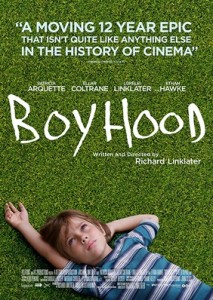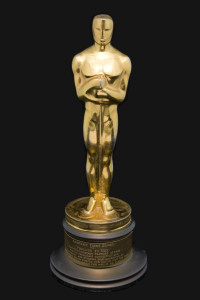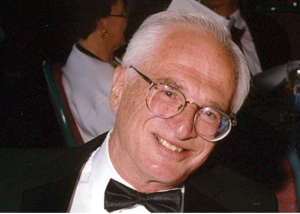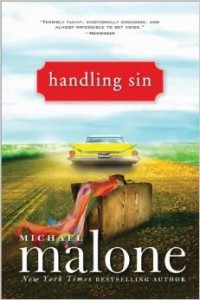Rereading Lord Jim
I have had Conrad’s Lord Jim in mind as one of my favourite novels since I first read it, close to twenty years ago. I remember it as the perfect mix of excitement, exoticism, storytelling, and idea. It was a perfect book to me. It was what I wanted to do, as a writer. I was convinced it was the greatest novel. I recommended it to everyone, I loved to talk about it.
Now,these many moons later, I have no idea, really, if this is remotely right. I haven’t really looked at it since then. I don’t remember what it’s about, except that its in India, or Thailand, or someplace hot and east. I remember the set-up for Jim. I remember the shell story, or the storyteller, at least (Marlowe? The same storyteller as Heart of Darkness, I think).
I don’t remember the story.
So, I’m reading it again.
Wish me luck. I hope I have a better revisit than I had with The Sea Wolf!


Federer vs Nadal: A Nietzschean Match-Up For the Ages!
I wrote this post 8 years ago, for the French Open. The Federer/Nadal rivalry was already one of the all-time great ones, though Nadal had not yet “run away” with the head to head. That took a little lustre off it as a rivalry in terms of their direct contests (Rafa dominates the H2H 23-11; but in terms of career accomplishments, Roger is far in front). Still, here we are, 6 years from their LAST Grand Slam final (a 2011 French Open win for Rafa), and the two are ready for a kind of tennis Valhalla battle. So, before we do, please take a look at some thoughts from a long time ago, a Nietzschean analysis about what makes this rivalry so enthralling, despite the lopsided H2H in Rafa’s favour: [Read more…]
Tragically Hip, Twisted: a #1 bestseller and fundraiser for cancer research
An exciting week, this, and its only Tuesday. Monday, I connected with the Sunnybrook Foundation to begin a donor-relationship with funds from the sale of Tragically Hip, Twisted, going specifically to the Gord Downie Fund for Brain Cancer Research. The whole idea behind putting the book together was as a tribute to the Hip; to be able to fundraise through the book in this way seems to fit together with that. Aside from these donations being in honour of the band, cancer has been a major actor in my life and my family’s story. I imagine a lot of people would say that, but I feel it acutely. I lost my mother to cancer when I was a child. My father, as a lung surgeon, spent his career fighting cancer, and my brothers and I had the opportunity create a visiting professorship at the Ottawa Hospital in his name, to bring cutting edge research in the field to my father’s old department. In addition, one of my brothers is a neurosurgeon, continuing the idea of cancer as a personal family adversary.
On a lighter note, today, Tragically Hip, Twisted became Amazon’s #1 bestselling Canadian short story collection. Anytime you can lead a list containing Margaret Atwood, Alice Munro, David Bezmogis and Lucy Maud Montgomery, you’ll take it. (Bestseller-page image below the Sunnybrook letter).
Stories Based on Themes from the Music of the Tragically Hip
Update: I have a web page for my Tragically Hip-inspired ebooks, and my new hardcover illustrated collection, Tragically Hip, Twisted. Check it out here. But if you still want to read this post, by all means, read on…
Over a decade ago I began a hobby that I’ve still not given up, though I get to play at it seldom. I write short stories based on Tragically Hip songs. Not the songs that tell a story – because they already tell a story. But the songs that don’t quite, on their own. I’ve always found the Hip’s music expressionistic and evocative. Their music put stories in my mind, even when the lyrics don’t tell one directly. They tell story snippets. The listener can piece together a multiplicity of possible stories from them.
The Flood: Finalist for Indie Thriller of the Year
 I am late with this announcement, but very proud to make it: My debut novel The Flood has been named a finalist in the thriller category for Foreword Review’s annual IndieFab book awards.
I am late with this announcement, but very proud to make it: My debut novel The Flood has been named a finalist in the thriller category for Foreword Review’s annual IndieFab book awards.
A Few Books I’ve Loved (2003-2011)
Of books.
I just discovered an historic document! A list of all the books I’d read from 2003 to the beginning of 2011. I began keeping the list because I thought it would pressure me to read more. It wound up just being fun, especially looking back and remembering. I’d rated them, too. I don’t really know why, its just one of those OCD-type things I would insist on being strict about. [Read more…]
Infinite Jest and The Birth of Tragedy: Art as mover of man
Random Acts of Music (The Newly Recorded Art of Stranger-Jams) [Part I]
I have a new passion, as of yesterday. I’ve been gorging on a very niche form of music: jamming between strangers. I didn’t just discover this yesterday. I’ve been participating in it for over twenty years, but I just discovered the YOUTUBE videos. That’s the thing about random jamming with strangers: they’re unplanned. There’s little recording of this, unless you happen to be, say James Brown, Prince, BB King and Michael Jackson. (OK, they weren’t strangers, but just enjoy the damn video).
So now, with video camera cell phones everywhere, this whole art form, which has existed only in vanishing, isolated moments in space and time, is suddenly recorded, and callable at whim – we can see just how much fun is being had out there.
Check some of these out. This is what music is all about to me: improvisation without a net; sharing; creating as a team; opening minds; breaking down barriers; and pure joy.
Check this:
So much to love in this! Look at that face on the second sax player as he gets ready, he KNOWS something special is going down. The first guy ALREADY has the train dancing and bouncing. Then in comes the second gun-slinger, and it is ON and everybody knows it. Listen to that clapping! That is a sophisticated audience there. Make sure you wait for Part 2 in the video, it just blows the roof off. And again at 3:40.
Or check this one:
.
Or this:
This last is a public piano in Amsterdam. You can Youtube a whole range of stranger-jams at that piano, or any of the other public pianos which have been sprouting up. That’s cool.
Myself, I am a lousy musician across a wide spectrum of instruments. I love playing. I am least bad at harp (harmonica), then probably piano. A step down in bad is my ukulele, and then my sax playing, and then a level below that are vocals and drums. I’ve been known to play bass, but that’s below the range of the chart. -Eleven.
The great thing about a harp is that it travels with you, so wherever I am, if the situation comes up, I am equipped to make music. This has led to some of the greatest memories of my life, these impromptu jams. On a beach, a street corner, a subway stop, or, of course, in a bar or on any other stage, THERE is music. There’s the spark, someone has begun. There’s the opportunity: if one more musician, armed and in-the-mood walks by, there’s the fire, and the magic.
I am in love with this form, and look forward to discovering more gems like these! Be a part of it!
Whitewater Canoeing and the Soul, and the Dumoine River
On the river, you hear the danger before you see it . That loud white noise, the sound of a thousand toilets flushing; a buzzing in your brain so similar to the one before the trip, when you wondered if just maybe this was a bad idea.
You come around a bend and see the white froth on the horizon line of the river. Maybe this was a bad idea. You stand in the back of the canoe for a better view, discuss with your partner a route through the long, rocky, droppy, turbulent mess – hidden boulders to avoid, eddies to shelter in, chutes to aim for.
Afterwards, in the first calm water downstream, you’re a bit shaken, a bit wet. One or two more dings on the heavy ABS plastic canoe. The fear drains out and you’re filled with adrenaline and euphoria. This is whitewater canoeing.
The Unabomber wrote about surrogate activities, distractions we concoct for ourselves to take the place of our primal and once-dangerous hunt for food and shelter; to fill that psychological void. I wonder about this: is there a hierarchy of legitimacy to recreational activity? Are some more indicative of a balanced psyche? Is there something unhealthy about using dangerous situations for fun, just to find a way out (alone and remote, in the case of whitewater canoeing)?
It’s hard to imagine feeling as alive as riding a wild river by canoe, or as healthy and whole as sleeping by it. Maybe it’s just a mistake to use the Unabomber as my standard for mental health. 
My wife and I spent 5 days on the Dumoine. It was our first time on the Dumoine. The river flows more or less north-south from the Canadian Shield highlands to the Ottawa River, dropping 500 feet along the way. The altitude drops make it a whitewater river. The Dumoine has two sister rivers, the Noire and Coulonge, which run over roughly the same terrain. We’d run those two before, but the Dumoine is supposed to be the classic, one of the superstar rivers of Quebec.
We drove to our take out point, where a shuttle took us up river. That way, our car would be waiting at the bottom. Getting to the Dumoine, we got up at 5, drove to Da Swisha, then shuttled up the old logging roads to put in around 60 km of river above the Ottawa by early afternoon. This is how trips start: the driver drops you and your canoe and your gear deep into the bush, somewhere near the river, and disappears down the dirt road. You look up, look around, and go, by fuck, we’re on our own now.
This is one of the special things about wilderness camping. Other vacations, you go to the beach, it takes a few days to wash “home” off you, the office, the home projects, the headaches and nerve-rattles. A weekend is a break, not a vacation, because you can’t forget that quickly. Except wilderness camping. The moment that shuttle is gone, shit is real and you are there, in that moment. It’s another world, and you’re another man in it. Remember that old Dungeons & Dragons cartoon where the kids take a roller coaster, and then it transports them to a fantasy world with unicorns and dragons? Like that.
Our bags and barrel and canoe are lying on this scruffy beach next to the Dumoine, and it’s always a strange feeling seeing that everything you depend on, food, shelter, clothes, camp gear, is going in that canoe. 
We quickly packed the canoe, and slid off the beach and out into the current. The Dumoine welcomed us in with an immediate long series of rapids (“Bridge Rapids”), and we were gone as quick as the shuttle.
The river was relentless (how Megan put it). After that long day of road travel, we spent the afternoon running eleven high-class rapids. Eleven times hearing that noise, approaching for a first look, nerves and adrenaline firing, making the decision: do we run it straightaway? Scout more from shore? Skip it and portage? Then, the active intensity of the run. Eleven times. Nine went well. Two were hairy, with significant boulder contact, having to get out a couple times to push off rocks to get unpinned. Always a nervy experience. Lulu Lemon says you should feel fear at least once a day. So we’re good with Lulu.
Each rapid is different; you learn to read the water to understand what’s happening underneath. With low water levels, the Dumoine rapids were predominantly long boulder gardens, with not much margin for error; and challenging river bends through the rapids making them difficult to scout.
We made camp at Little Steel rapids the first night. It was a beautiful, shaded site right in the midst of the rapids, swarming with mosquitoes. There was no spot calm enough to swim or fish around the site, but the views were spectacular.
Here was the juxtaposition that makes whitewater canoeing a rare experience. The wet, splashing excitement, the fury of the river, the intensity of concentration as boulders whizz by. You’re thinking about a plan to work the rapid, at the same time as the paddle and balance technique needed to follow the plan. Your body is fully engaged, all while watching, hyper-alert, for surprises. Then, the serenity of camp, the infinity of the wild. No sign of human contact save a portage trail and fire pit.
These rivers have been run for thousands of years by native peoples before the plastic boats. They would have used the same portage trails, the same campsites, maybe even the same spot for a firepit. When you walk here, you are completely separate from humanity in the moment, yet connected with a thousand years of it.
There is a ying-yang here of human experience. I’d go so far as to bring out the ol’ Apollonian/ Dionysian. I use these terms following Nietzche’s use in Birth of Tragedy, who set them up as distinctive, opposing forces in experience and art.
[I’ve used this schtick before, within the context of the great tennis rivalry between Roger Federer and Rafael Nadal. But it’s one of my favourite concepts. So useful in describing so much of human experience.]
The Apollonian is man as a self-conscious individual. He is the man in a fragile craft, holding onto his sanity, ego and identity on a deep ocean of mystery. Paintings and sculpture are Apollonian, individuating arts. They celebrate differentiation and uniqueness of objects.
Dionysian is humanity as One. It is the connection of man to each other, and the universe, the often-ecstatic loss of self as experienced in Dionysian festivals (or drum circles, raves, shamanic ceremonies, religious experience, drug and alcohol use, etc). It is the man outside the craft, in the ocean. Music and dance are Dionysian arts.
Canoeing the rapids is a pretty literal interpretation of the man-in-the-fragile-craft metaphor.
You are as individuated, as focused on your physical being in that moment, as can be. You are fighting to protect that individual. Then all at once, you find yourself in nature, and melt into it. Your individuality is gone, you are swallowed by the wild.
One night, on a quiet stretch of river, I watched the wakes of invisible bugs on the glasslike surface, disturbing for a moment the reflection of the trees, hundreds of yards away. Damn right, it was serene. Nietzsche claimed that it was the bringing together of Apollonian and Dionysian tendencies in Greek tragedy that made it a sublime, ultimate art. There’s no ultimate sport, or pastime, despite the Unabombers’ hierarchy. We all experience and profit from our recreation in different ways. But whitewater canoe camping has unique combination of feelings. The mosquitoes fit in somewhere, metaphorically. I’ll get back to you on that.
We travelled like this four more days. One of those was spent in camp, at Red Pine Rapids, as a play day. I love play day. No campsite tear-down and set-up. No need to go anywhere. Nothing but to enjoy the place, rerunning the same rapid different ways, practicing techniques, fishing, reading, writing. Reclining in the hot sun in a shallow rapid – a glass of white wine, still cold, in hand, the cool river flushing over your bottom half.
Unlike the Coulonge and Noire rivers where paddlers generally take out somewhere along the river itself, the Dumoine has no road access near its mouth, and spills right out into the wide Ottawa. You finish the trip by paddling through the wind and waves of the big river. Your car is waiting on the other side.
You open the car, change into some clean clothes, pack your stuff up and take off. That’s it. No ceremony, no medal, no one waiting to shake your hand or cheer. No one knows or cares. Something magical happened. You’re bursting to talk about it, the experience is too big to keep inside. But you can never capture magic with words. You start the car, get in gear, and that world is shut behind a portal. You will have to find it again next year, that portal. For now, you are back to the mundane world, with a pile of dirty gear.
***
Wakefield Literary Festival
Saturday I had a great opportunity to be at the books table for Wakefield Literary Festival’s discussion with Charlotte Gray and Sean Michaels. I did a post on the event for apt613, Ottawa’s fantastic culture web-zine.
Two short thoughts on Jack: #2) Jack London and the Cutting Edge of History
You could probably guess that I’m a London fan.
As I said in the last post, I was reading a London short story, Shin-Bones. This is one of the South Seas stories, this about an Oxford-educated, thoroughly modern Hawaiian alii or prince, just returned from the Boer War. He narrates a story to his American or European friend about a thoroughly ancient adventure he had undertaken just years before, involving his ancestors sacred bones.
London’s writings encompass the turn of the last century, the 1890’s to his death in 1916. One of the things that makes London such a unique character in the pantheon of artists is that he did not capture just his moment, nor is his work “purely universal”, lacking time or place. He captured his moment at the edges, at the cutting edge of history.
His adventure stories in the Yukon are not just about the Gold Rush. His South Pacific stories are not just sailing adventures. London sketched, in story after story, the expanding edge of Euro-American civilization, and the soft, often bleeding cultures that civilization was breaking into.
London could be called naive, even racist for his early stories about the American adventurers and the Native people of the North. The Americans, generally, are the smarter, the tougher. They are winning. Their culture is supplanting the other, darker, primitive one, and that is portrayed as a good thing. I excuse London as being young, full of Spencerian and Nietzschean ideas of power. But even in these early stories, the Natives are often portrayed with great sympathy, occasionally showing superior intelligence and character, and that victory of Euro-American civilization is tinged with question marks.
London grew, travelled further, and changed. In his South Seas stories, a different theme emerges: here, the White Euro-American conqueror is a corrupting influence; an amoral destroyer in the name of God and dollars. The heroes, tragic heroes, are generally the island Natives, or Chinese, helpless though strong themselves, not at all pathetic in the face of this unstoppable force. Even in London’s novel The Sea Wolf, that great villain Wolf Larsen (who I would put on a pedestal with Darth Vader among the great bad guys of all time) is a very Nietzschean creature, strong of will, mind and body, superior to all around him. In an earlier story, he might have been the hero. But in The Sea Wolf he is the bad guy, and the weaker artsy-boy is the good guy.
I can only speak from my perspective, as a child of that White European “civilization”, but I see, in the entirety of London’s work, a complex and layered artistic representation of the encroachment of the Twentieth Century on cultures that weren’t ready for that invasion.
So much for that. My question is: Who is the Jack London of today? What would she or he be writing? What is the cutting edge of this moment? Where are movements coming together to change the world? Is it Silicone Valley? Is it in a mosque, in London or in Saudi Arabia, or in the desert domain of Islamic State? Is it in Beijing?
Your thoughts?
Two short thoughts on Jack: #1) Jack London and the Meaning of Art
There are times I feel disconnected from myself and from my surroundings; pessimistic. When I have difficulty finding cheer. In those times, I sometimes turn to Jack London. Last night, I began a London short story before bed, and finished it with coffee this morning. It worked well. It made me feel better. I wondered at that – it didn’t seem a matter of distraction-entertainment, the way a movie can sweep you away. I was still myself, in my place; I just felt better, more peaceful and optimistic. Elevated. What was it?
Come here, I’ll tell you.
People say, ‘You can’t explain art.’ or ‘No one really knows what art is.’
Bullshit. I’ll tell you what art is. Art is a conduit between the reality we experience and the world behind the veil. Life is a mystery, and art lets us feel that mystery, to understand it, though we can’t explain it. That is the thread between music, literature, sculpture, painting and dance. This understanding imparted, this temporary harmony with existence, makes us feel peace. We touch the rock, and feel steadied by it. I don’t claim this is a new idea. I get it myself from Schopenhauer, Emerson and Nietzsche who have so much more to say on the subject, and I am sure many others have written about it. But we forget it don’t we, in a world so rational and modern, where we turn a blind eye to the mystery of existence; we twist our whole psyches to do that, and maybe suffer injuries from that contortion – and without that mystery, what value after all is there in art? Distraction-entertainment feels good, art feels elevating.
So I read Jack London when I feel bad.
Fathers, Sons and Books
This year, a miracle has been unfolding before my eyes.
My son is becoming a reader. Yes, Grade One: Where miracles happen! [Read more…]
Why Boyhood Did Not Deserve An Oscar

 I haven’t seen Birdman yet, but I still know that Boyhood did not deserve to win, because I DID see Boyhood. And it wasn’t the deliberate lack of story that made it so, so forgettable. [Read more…]
I haven’t seen Birdman yet, but I still know that Boyhood did not deserve to win, because I DID see Boyhood. And it wasn’t the deliberate lack of story that made it so, so forgettable. [Read more…]









![Pageflex Persona [document: PRS0000034_00006]](http://davidsachs.mountainwebmedia.com.php56-6.dfw3-2.websitetestlink.com/wp-content/uploads/2016/08/Scared_Small-200x300.jpg)













